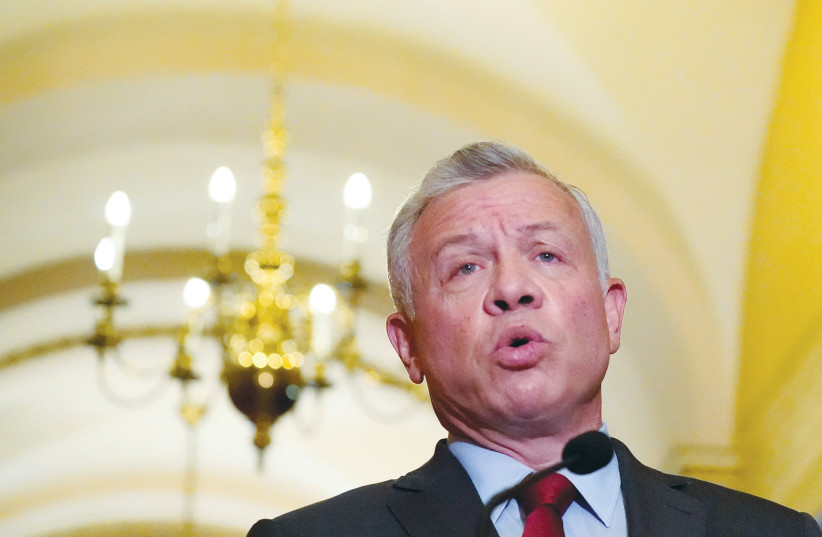WASHINGTON – US President Joe Biden will meet with King Abdullah of Jordan and his son, Crown Prince Hussein, on Friday, the White House has announced.
“King Abdullah’s visit to Washington, his second with the Biden Administration, will reinforce the close friendship and enduring partnership between the United States and Jordan,” the White House said. “Jordan is a critical force for stability in the Middle East and strategic partner and ally of the United States.”
“The Hashemite Kingdom has recently made a push for a greater agency on the Temple Mount in Jerusalem, amidst flaring tensions between Israelis and Palestinians,” said Jonathan Schanzer, Senior Vice President at the Foundation for Defense of Democracies.
“Such statements resonate among Jordan’s Palestinian citizens, who account for as many as 80% of the Jordanian population,” said Schanzer. “The King may seek to press this during his meeting with President Biden. But this would only distract from the more serious issues that Jordan must address.”
He said that the country continues to endure economic woes, COVID challenges, “and a fallout within the ruling family stemming from allegations that King Abdullah is mismanaging the Kingdom.”

“With the crisis in Ukraine its likely impact on grain exports, Jordan must also begin to proactively address the potential for a surge in bread prices,” Schanzer said. “This will do little to quell the periodic complaints voiced on the streets. One can only hope that this is the message that Biden conveys, rather than entertaining ideas about an expanded presence in Israel.”
Lucy Kurtzer-Ellenbogen director of the Israeli-Palestinian conflict program at the US Institute of Peace said that King Abdullah will “certainly be focused on shoring up support for a renewal of the soon-to-expire US foreign assistance agreement to his country, but this meeting also comes in the context of flaring violent tensions and provocations between Israelis and Palestinians in the area surrounding al-Aqsa mosque.”
“Given Jordan’s historic role as custodian of that site, and strong popular Jordanian pressure in support of the Palestinians and against Jordanian and Israeli ties, one can expect King Abdullah to push hard on the need for US affirmation and support for maintaining Jordan’s active role and presence, and the historic status quo arrangement at the compound,” she said.
“With a broader marked decline in the Israeli-Palestinian security situation, and fresh memories of similar violence and tensions sparking last year’s conflagration of violence that engulfed Gaza, the West Bank and Israel, both leaders will be looking to each other to take actions and use the leverage they believe to be in the other’s power to maintain calm and avoid further Israeli-Palestinian destabilization.”
Elliott Abrams, a senior fellow for Middle Eastern studies at the Council on Foreign Relations (CFR) in Washington, said: “There will as always be a discussion of our foreign aid levels. But I think there will be a new emphasis in this visit: the Temple Mount.
“Jordan is concerned not only about the violence, but its own traditional role. It does not want to see Hamas gaining influence in place of the PA, and it does not want its own role replaced by the Saudis. The King will want the US to tell Israel that the Jordanian role must be strengthened and protected.”
